Disclosure: This article contains affiliate links. We may earn a commission from purchases at no extra cost to you, which helps our travel content.
The juxtaposition of ancient traditions and ultramodern luxury in Bangkok creates a fascinating study in contrasts that I've found myself drawn to repeatedly over the years. As someone who spends most days analyzing the intricate details of medical imaging, I find similar satisfaction in dissecting the elements that constitute truly exceptional hospitality experiences. Bangkok, particularly in winter when the humidity recedes to bearable levels, offers what I consider the perfect laboratory for luxury travel analysis. During my recent week-long respite from Durham's winter chill—a brief interlude between a medical imaging conference in Singapore and my return to clinical duties—I embarked on a methodical exploration of Bangkok's premium offerings. What follows is my assessment of the city's most noteworthy luxury experiences, with particular attention to design elements that might inspire healthcare environments and the craftspeople preserving traditional techniques amid this rapidly evolving metropolis.
Riverside Sanctuaries: Bangkok's Heritage Luxury Hotels
Bangkok's relationship with the Chao Phraya River provides the foundation for its most distinctive luxury accommodations. My systematic evaluation began at The Mandarin Oriental, where I was particularly interested in examining how this historic property maintains relevance while preserving its colonial-era architectural integrity.
The 145-year-old Authors' Wing exemplifies successful architectural conservation, with its restored louvered shutters and hand-painted porcelain precisely as Somerset Maugham might have experienced them. What impressed me most was the thoughtful integration of modern amenities without compromising historical authenticity—a challenge we face similarly when updating medical facilities with advanced technology while maintaining a healing environment.
Across the river, The Siam presents a different but equally compelling case study in luxury design. Designer Bill Bensley's vision here demonstrates how contemporary luxury can incorporate traditional elements without resorting to pastiche. The private pool villas, featuring reclaimed teak and carefully curated antiques, achieve something I've long advocated in healthcare design—creating spaces that feel both timeless and deeply personal.
For those seeking riverside accommodations, I recommend securing a travel adapter with multiple USB ports. Bangkok's luxury hotels often feature a mix of outlet types, and maintaining power for devices is essential when documenting architectural details and craft techniques.
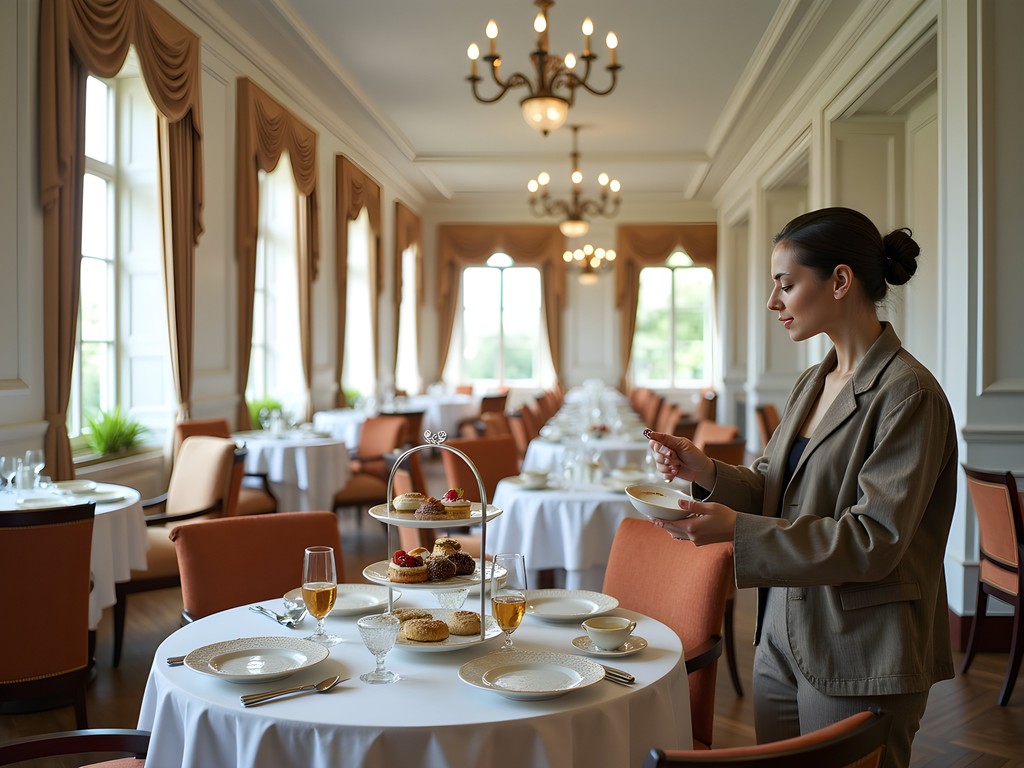
💡 Pro Tips
- Request river-facing rooms for optimal views and natural light patterns throughout the day
- The Oriental's shuttle boat service provides excellent photographic opportunities of the riverfront at golden hour
- Book spa treatments early morning to avoid the afternoon heat and humidity
The Elevated Experience: Bangkok's Premium Rooftop Venues
Bangkok's vertical expansion has generated a remarkable collection of rooftop venues that warrant methodical evaluation. My assessment criteria included design innovation, material quality, spatial flow, and the integration of traditional Thai elements with contemporary luxury standards.
Lebua at State Tower's Sky Bar (made famous by 'The Hangover Part II') represents one end of the spectrum—theatrical luxury with its suspended golden dome and dramatic lighting. While visually striking, the experience prioritizes spectacle over substance. In contrast, The Banyan Tree's Vertigo offers a more restrained elegance, with its 61st-floor open-air design providing unobstructed panoramas without unnecessary embellishment.
My comprehensive analysis leads me to recommend Mahanakhon SkyBar as the optimal rooftop experience. Designed by Tristan Auer, the venue demonstrates exceptional attention to material selection—particularly the integration of brass elements with indigenous hardwoods—creating spaces that transition seamlessly from day to night use. The precision in execution reminded me of the careful material considerations we employ in designing medical imaging suites, where each element must serve both functional and psychological purposes.
For capturing these elevated experiences, I rely on my compact camera, which handles Bangkok's challenging lighting conditions remarkably well, particularly during the golden hour when the city's skyline transforms into a canvas of amber and gold.
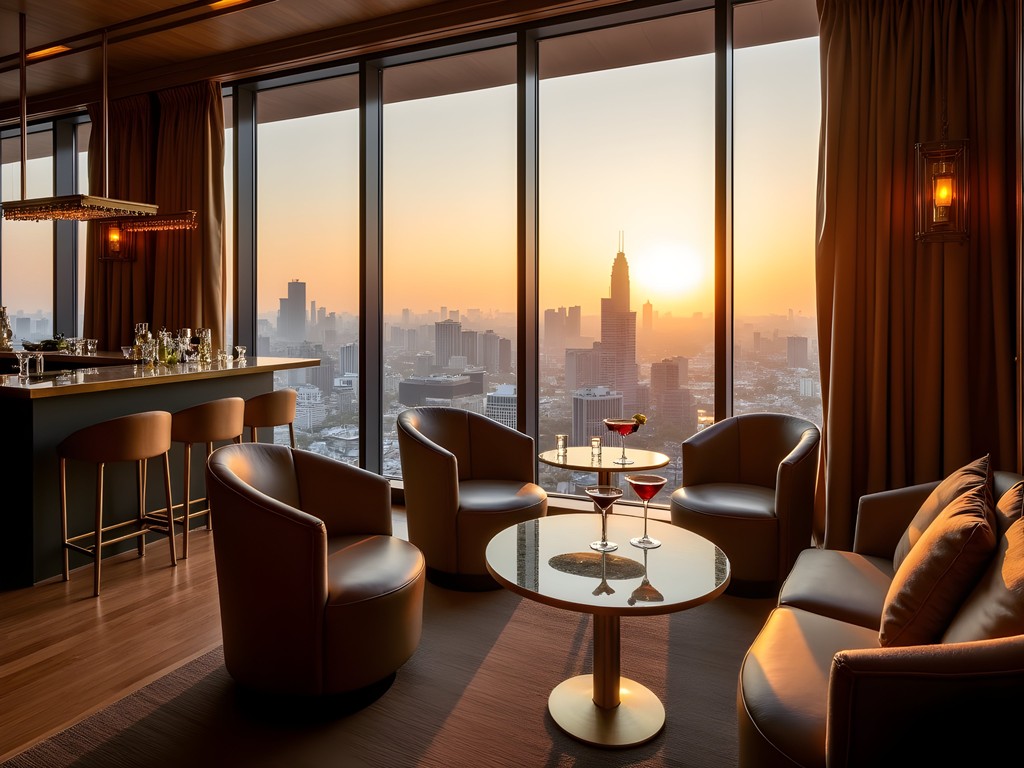
💡 Pro Tips
- Make reservations 2-3 weeks in advance for premium seating at top venues
- Visit rooftops 30 minutes before sunset to experience both daylight and evening illumination transitions
- Most premium rooftops enforce a smart casual dress code—closed shoes and collared shirts for men are typically required
Culinary Craftsmanship: Bangkok's Gastronomic Excellence
Bangkok's evolution into a world-class culinary destination presents a fascinating study in how traditional techniques adapt to contemporary contexts. My systematic exploration focused primarily on establishments where chef-artisans demonstrate exceptional technical precision while honoring traditional methods.
At Gaggan Anand, the chef's molecular approach to Indian cuisine provides an intriguing parallel to medical imaging—both fields require precise technical execution while maintaining focus on the human experience. The contrast between Gaggan's laboratory-like precision and the emotional response his creations evoke demonstrates how technical excellence can serve experiential outcomes.
Le Normandie at the Mandarin Oriental offers a different but equally compelling case study in culinary craftsmanship. Chef Arnaud Dunand Sauthier's meticulous approach to French cuisine, particularly his subtle integration of Thai ingredients, exemplifies thoughtful cross-cultural adaptation without compromising authenticity—a balance I've long studied in how traditional craftspeople evolve their practices without losing their essence.
Perhaps most impressive was my dinner at Sühring, where twin chefs Thomas and Mathias Sühring apply German technical discipline to create dishes that honor tradition while embracing innovation. Their tasting menu is structured with the methodical progression one might find in a well-designed medical protocol—each element building logically upon the last, with careful attention to timing and sensory experience.
For those planning to document these culinary experiences, I recommend a smartphone tripod for capturing steady images in low-light restaurant environments without disturbing other diners.
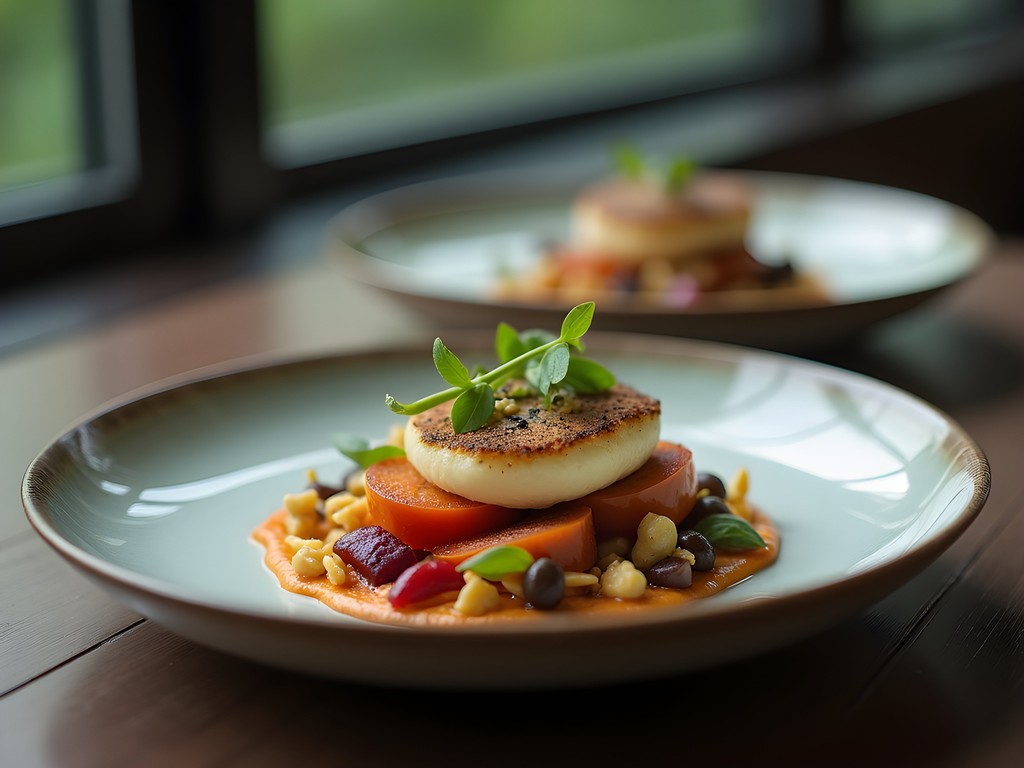
💡 Pro Tips
- Book fine dining reservations at least one month in advance, particularly for chef's table experiences
- Consider lunch for more affordable access to Michelin-starred venues
- Request menu annotations for wine pairings to fully appreciate the thought process behind flavor combinations
Artisanal Encounters: Bangkok's Traditional Craft Masters
While luxury accommodations and dining experiences form the framework of premium travel, my most meaningful Bangkok encounters consistently involve the city's master craftspeople. These interactions provide valuable insights into how traditional knowledge systems adapt to contemporary contexts—a parallel to how medical practices evolve while maintaining core principles.
In Bangkok's historic Baan Bu community, I spent a morning with the Thongthai family, who have preserved the art of khan long hin (stone-polished bronze bowls) for eight generations. Their workshop demonstrates remarkable efficiency of movement—each family member performing specialized tasks with the coordinated precision of a surgical team. Most fascinating was their adaptation of traditional techniques to create contemporary designs while maintaining historical methods—a balance I often consider when evaluating how medical practices incorporate new technologies.
At Pinsuwan Benjarong, master porcelain painter Vichit Pinsuwan demonstrated the five-color technique that defines traditional Thai Benjarong ware. His methodical approach to composition and color application—working from background to foreground with progressive detail—reminded me of the layered analysis we employ in diagnostic imaging. What particularly struck me was his workshop's innovative adaptation of traditional motifs for contemporary contexts without compromising technical standards.
For documenting craft processes in varied lighting conditions, I've found my light meter invaluable, particularly when photographing metalwork and ceramics where accurate color rendering is essential for later reference.
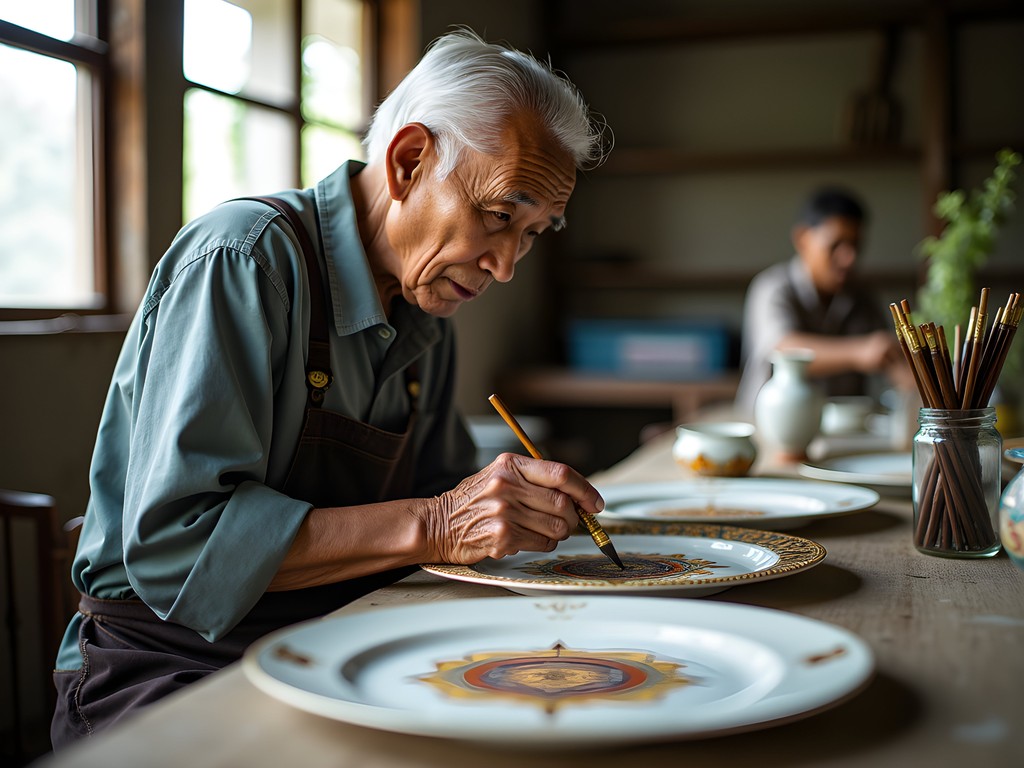
💡 Pro Tips
- Contact artisans at least a week in advance to arrange studio visits
- Morning visits typically offer the best natural light for observing and photographing craft techniques
- Consider commissioning small pieces directly from workshops—they often ship internationally
Wellness Sanctuaries: Bangkok's Premium Spa Experiences
Bangkok's luxury spa offerings provide fascinating case studies in how traditional healing practices can be adapted for contemporary wellness applications—a subject that parallels my professional interest in how ancient knowledge systems might inform modern medical practices.
The Oriental Spa at Mandarin Oriental presents perhaps the most comprehensive integration of traditional Thai therapeutic techniques with evidence-based wellness approaches. Their Thai herbal compress treatment (Luk Pra Kob) demonstrates particular attention to material selection and thermal properties. The practitioner's methodical application of pressure follows sen energy lines with a precision that reflects centuries of anatomical observation—a traditional knowledge system with clear parallels to modern physiotherapy.
At Panpuri Wellness, I conducted a comparative analysis of their organic product formulations against traditional Thai herbal preparations. Their signature treatments incorporate indigenous botanical ingredients with documented bioactive properties—lemongrass, turmeric, and plai—in formulations optimized through contemporary extraction methods. This balance of traditional knowledge and modern technique represents the thoughtful evolution I find most compelling in both craft and medical contexts.
The RAKxa Wellness retreat on Bangkok's periphery warrants particular attention for those seeking comprehensive wellness programming. Their integration of traditional Thai medicine with conventional medical supervision creates a unique model for holistic health that maintains scientific rigor—a balance I've long advocated in my own field.
For travelers seeking to maintain wellness routines while traveling, I recommend a portable travel yoga mat that provides adequate cushioning while folding compactly for suitcase transport.
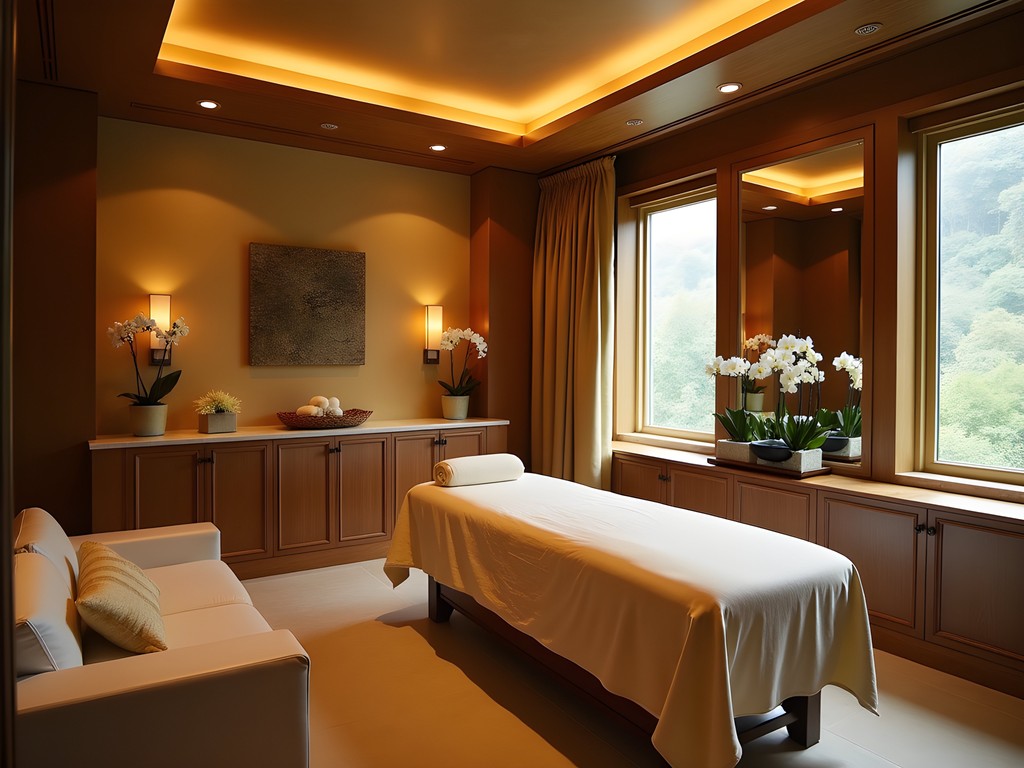
💡 Pro Tips
- Book spa treatments during mid-week for more attentive service and quieter environments
- Request therapists with advanced training in traditional Thai medicine for authentic techniques
- Allow 30 minutes before treatments to enjoy pre-therapy rituals like herbal steam rooms
Final Thoughts
Bangkok's luxury landscape presents a compelling study in how traditional elements can be thoughtfully integrated with contemporary standards to create exceptional experiences. What I find most valuable about these premium encounters is not merely their indulgence factor, but rather how they preserve and elevate traditional craftsmanship and knowledge systems that might otherwise be lost to modernization. As healthcare professionals, we might draw valuable lessons from Bangkok's best luxury venues—particularly in how they balance technical excellence with human experience, and how they honor tradition while embracing innovation. Whether you're seeking a romantic retreat or professional inspiration, Bangkok in winter offers ideal conditions for methodical exploration of these exceptional experiences. I'll be returning next year to continue my documentation of the city's evolving luxury landscape, with particular focus on how traditional craft techniques are being preserved through contemporary applications.
✨ Key Takeaways
- Bangkok's riverside properties offer the optimal balance of traditional architecture and contemporary luxury
- Winter months (November-February) provide ideal climate conditions for rooftop experiences and outdoor exploration
- Advance planning is essential for accessing premium dining and craft experiences
- The preservation of traditional crafts through luxury applications offers a sustainable model for cultural conservation
📋 Practical Information
Best Time to Visit
November through February (cool season)
Budget Estimate
$500-800 per day for premium experiences
Recommended Duration
7 days minimum
Difficulty Level
Easy
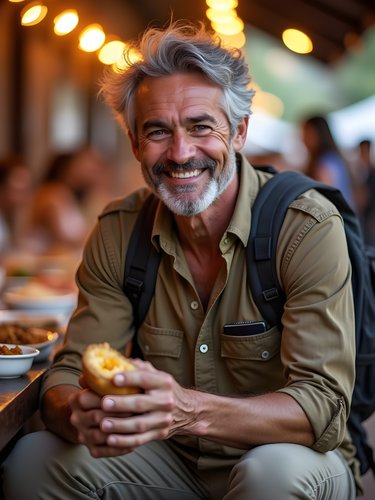

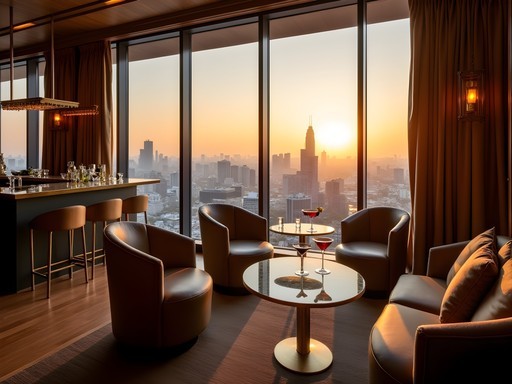
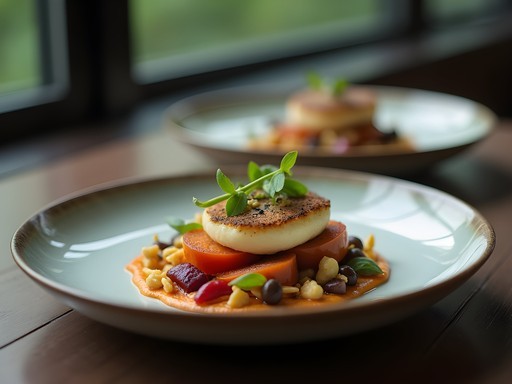
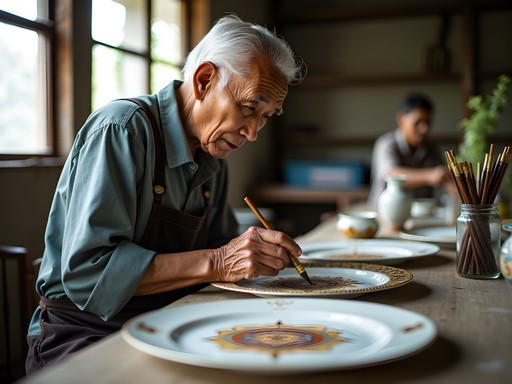
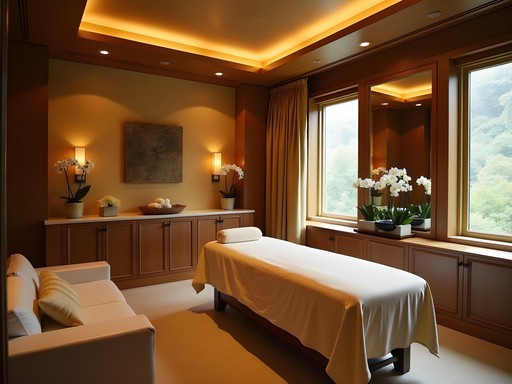


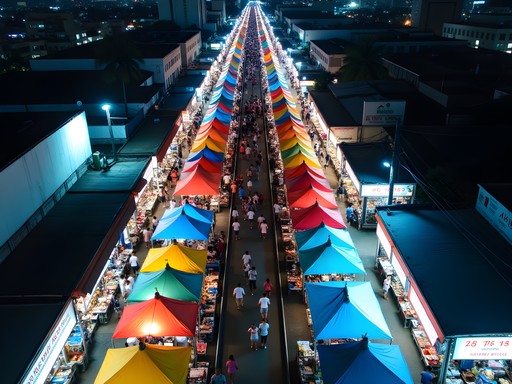
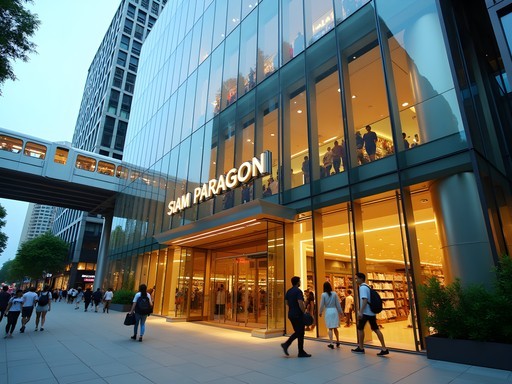

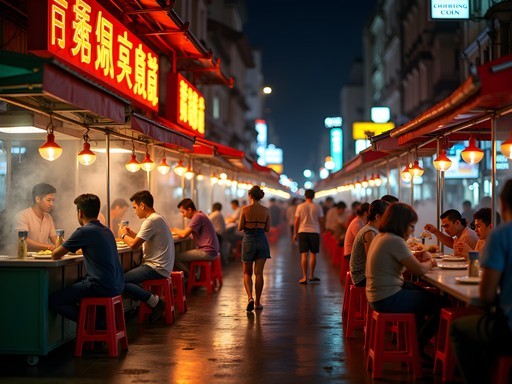
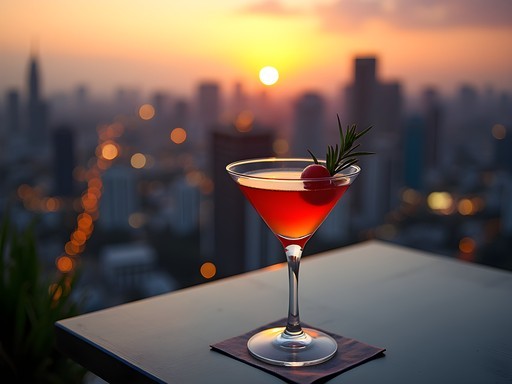
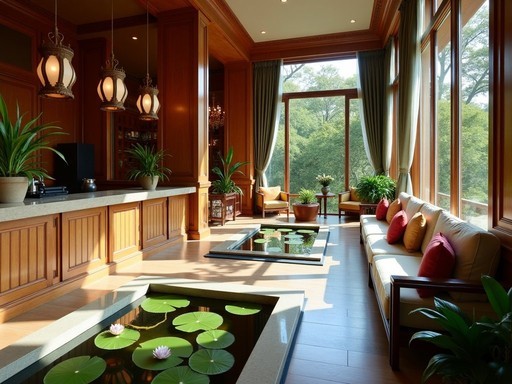
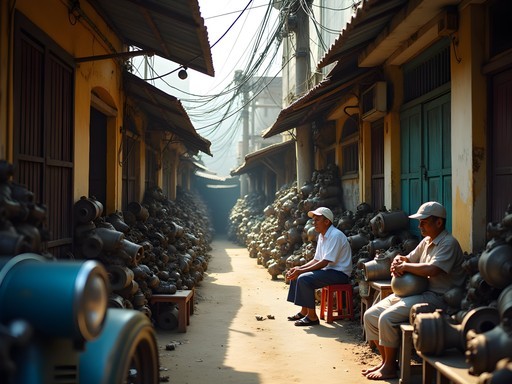
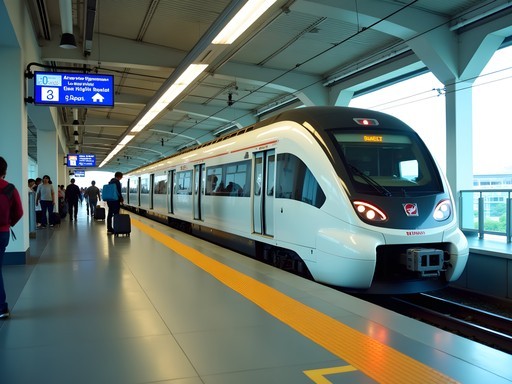
Comments
starmate
The Peninsula afternoon tea is worth it. Book ahead tho
Frank Garcia
Really thorough breakdown of the luxury scene, Jason. I spent three weeks in Bangkok last year doing the backpacker circuit, but I did splurge on one night at the Mandarin Oriental for my birthday. The contrast between my 400 baht hostel and that riverside suite was jarring but fascinating. What struck me most was how the luxury hotels integrate Thai design elements without making it feel like a theme park. The craftsmanship section resonates - I visited Jim Thompson's house and the level of detail in traditional Thai silk work is extraordinary. Did you get a chance to explore any of the artisan workshops in the Thonburi area?
journeybackpacker
Wait you can actually stay at these places on a backpacker budget if you just do one night?? Game changer
photophotographer
Your photos are incredible! What time of day did you shoot the riverside resort pics?
oceangal105
Which rooftop bar would you recommend for someone on their first visit? Are they super expensive or can regular people afford them lol
starmate
Sky Bar is iconic but pricey. Go for sunset, order one drink, totally worth it
Frank Garcia
I'd actually suggest starting at a mid-range rooftop like Octave or Above Eleven first. You get similar views for about 300-400 baht per cocktail versus 600+ at the ultra-premium spots. The experience is 80% as good for half the price. Save the splurge for one night at Lebua or Vertigo if you want the full luxury treatment.
journeybackpacker
Wow this looks amazing!! Definitely adding Bangkok to my list
Jean Wells
Jason, your analysis of how Bangkok balances tradition with modernity is spot on. Having lived in Asia for 15+ years, I've witnessed Bangkok's evolution firsthand. The section on artisanal encounters particularly resonated - I'd add Jim Thompson House to your list of craft experiences. Their silk workshop demonstrations provide fascinating insight into traditional techniques. One observation: luxury in Bangkok has become more experiential rather than merely opulent. The best hotels now offer curated cultural immersions that wouldn't be possible elsewhere. I documented some of these in my recent piece on cultural luxury in Southeast Asia. For those planning a visit, I recommend setting aside time for a private longtail boat tour at sunset before heading to one of Jason's recommended rooftop venues. The perspective shift from water to sky creates a memorable contrast.
TravellerAtHeart
Jean, that longtail boat + rooftop combo sounds perfect! Any specific company you'd recommend for the boat tour?
Jean Wells
Most luxury hotels can arrange private longtails with vetted operators. I've had good experiences with Anantara's service. If booking independently, Pandan Tour offers excellent guides who provide cultural context beyond the typical tourist script.
blueclimber
Just got back from Bangkok and followed your advice on the longtail + rooftop combo. AMAZING experience! We used this guidebook to find some hidden spots along the canals too.
blueclimber
Great post! Any recommendations for which riverside hotel has the best views? Heading to Bangkok in October and torn between a few options.
Jean Wells
I'm not Jason, but having stayed at several, I'd recommend The Peninsula for unobstructed river views. The Mandarin Oriental has more character if you prefer historical properties.
blueclimber
Thanks Jean! Character definitely matters to me. Did you find the Mandarin Oriental worth the splurge?
Jean Wells
Absolutely worth it. Request an Author's Suite if available - they're themed after famous writers who stayed there. The butler service and afternoon tea are exceptional experiences.
Jose McDonald
Just booked my flight to Bangkok after reading this! Your section on the traditional craft masters sealed the deal for me. I've been to Bangkok twice but always stayed in budget hostels. This time I'm treating myself to at least one night at a riverside hotel. Question though - are those rooftop bars strict on dress codes? I'm traveling light and wondering if I need to pack something fancy or if nice jeans and a button-up will work?
Jason Burns
Most enforce a smart casual code at minimum. No shorts or sandals. A nice button-up with decent jeans will work for most places, but the very top-tier spots (Sky Bar, Vertigo) prefer collared shirts and proper shoes. Worth dressing up for the experience!
Jose McDonald
Perfect, thanks! I can manage that. So excited to see those skyline views in person!
travelzone
Those food pics made me so hungry! 🤤
greenzone
Did you get a chance to visit any of the craft workshops in person? Wondering if the silk weaving demonstrations are tourist traps or actually authentic experiences?
Jason Burns
I visited three workshops and found Jim Thompson's House to be the most authentic for silk weaving. It's a museum but they have real artisans demonstrating traditional techniques. Skip the touristy places near Khao San Road.
Jose McDonald
Can confirm what Jason said! I also found a small family-run workshop in Bangkrak district through my guided tour that was incredible - zero tourists and I got to try weaving myself. The grandmother has been doing it for 60+ years!
Venture X
Premium card with 2X miles, $300 travel credit, Priority Pass